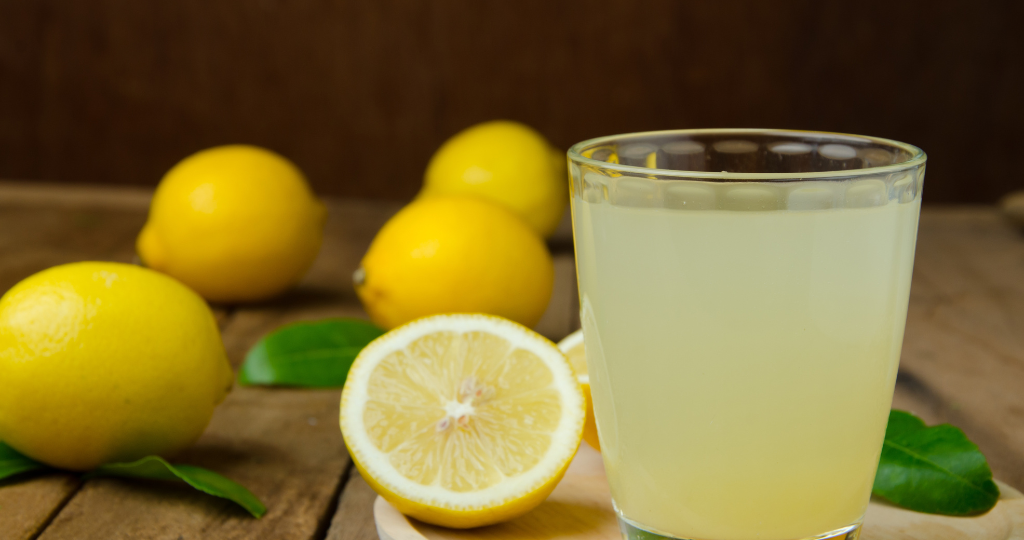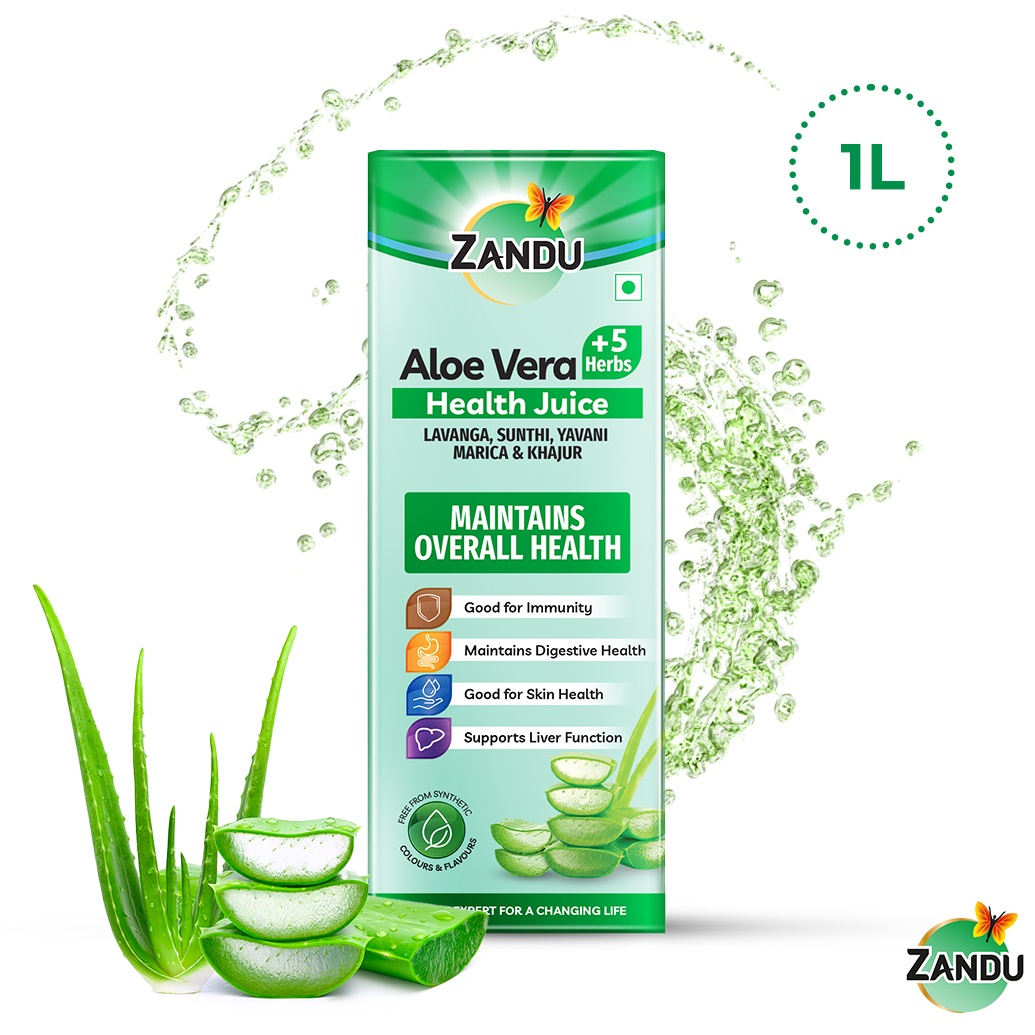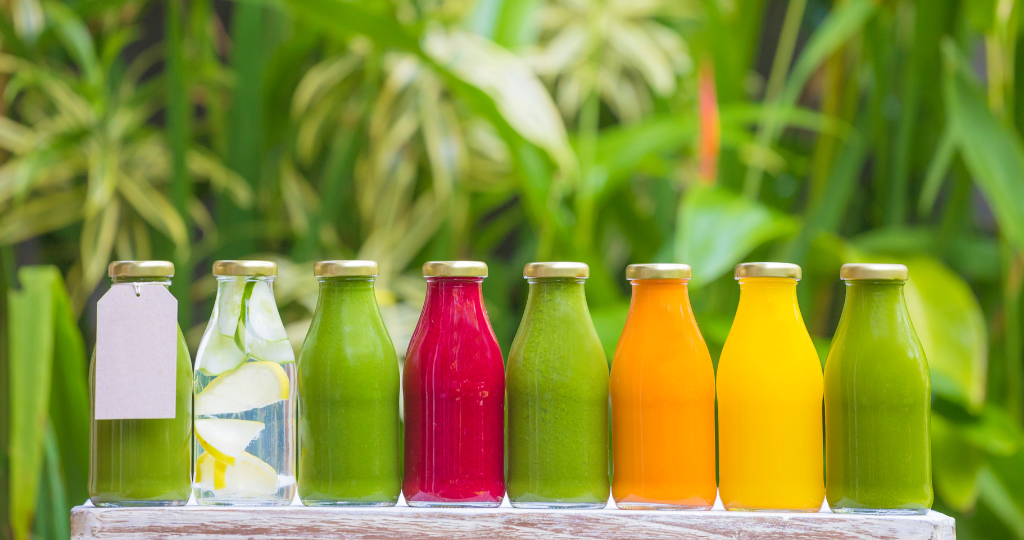
Concentrated Lemon Juice vs. Fresh Squeezed Lemons, Which is Better?
When life gives you lemons, using the juice to full advantage takes some decision-making. You could reach for the convenient bottle of concentrated juice or go through the effort of squeezing fresh lemons.
Both concentrated and freshly squeezed lemon juice can add vibrant flavour to recipes and provide health benefits. However, key differences impact just how nutritious and flavourful your juice will be.
Read on for a comparison detailing each variety's pros and cons to determine which lemon juice variety comes out on top for both quality and convenience.
An overview of concentrated lemon juice
Concentrated lemon juice refers to lemon juice that has had most of its original water content removed through evaporation. The key benefit of removing water is convenience - the resulting product takes up significantly less storage space and has an extended shelf life compared to fresh lemon juice. The process involves simmering freshly squeezed lemon juice for an extended period, allowing around 85% of the water to evaporate.
The remaining dense, acidic lemon syrup is then filtered, added preservatives, and packaged into bottles and cans. While removing water makes transport, handling, and storage easier, it also, unfortunately, strips out most of the vitamin C and antioxidants originally present in fresh-squeezed lemon juice. The final product keeps only a small fraction of the nutritional value found in lemons.
Shelf life and convenience of concentrated lemon juice
Concentrated lemon juice have an impressively long shelf life thanks to removing water and adding preservatives during processing. An unopened bottle can remain stable at room temperature for 12-18 months.

Once opened, the juice will last 4-6 months when stored correctly in the refrigerator. Not only does concentrate last much longer than fresh lemon juice, but it also offers convenience benefits as well:
- Takes up less storage space compared to bags of fresh lemons
- No need to refrigerate unopened bottles
- Available pre-packaged in plastic bottles for clean and easy use
- Built-in pour spouts allow tidy dispensing of recipes
- Eliminates regular lemon purchases since the supply lasts months
The flavour profile and acidity levels of concentrated lemon juice
The process of heating lemon juice to remove water removes many of the delicate organic compounds responsible for fragrance and flavours. Much of the natural sweetness and aromatics are destroyed. What remains tends to have an unpleasant artificial taste lacking true lemon essence:
- Overly sour, salty, bitter, and acidic flavour
- Unbalanced and often described as harsh or chemical-like
- Entirely lacking any bright, zesty, or sweet lemon tones
- It may have a somewhat stale and dull aroma
In addition, getting the acidity right can be tricky when reconstituting concentrate. Following package directions often leads to a very tart, puckering sourness. Start with 25% less water for improved flavour and adjust slowly from there. But no amount of tweaking can replace fresh lemon notes.
An overview of freshly squeezed lemon juice
Freshly squeezed lemon juice is extracted straight from lemons without any processing or concentration. Choosing organic lemons and extracting the juice right before use delivers the most accurate lemon flavour and peak nutrition.
The process is simple - lemons are sliced in half, juiced using a manual citrus press, reamer, or electric juicer, and then immediately used or properly stored. But the uncomplicated nature of fresh juice belies its incredible flavour and health benefits.
Unlike concentrated juice exposed to heat and preservatives, freshly squeezed juice retains the lemon's delicate balance of sweet and tart notes, mouthwatering aroma, and an array of plant nutrients. The juice bursts with vitamin C, potassium, antioxidants, anti-inflammatory compounds, and sulphuric aromatic essential oils that deliver outstanding lemon essence.
However, when refrigerated, fresh lemon juice only maintains peak quality for 2-3 days. Freezing small batches can help preserve both flavour and nutrients for future use. While more convenient than concentrate, fresh offers superior nutrition and authentic lemon flavour.

Shelf life and convenience of freshly squeezed lemon juice
Fresh lemon juice's shelf life is significantly shorter than that of concentrated juice, lasting just 2-3 days refrigerated. Squeezing juice right before use is best for peak flavour and nutritional quality.
This does create some convenience considerations:
- Requires frequent lemon purchases to maintain supply
- Must commit time to juice lemons before use
- Takes up refrigerator space storing fresh lemons
- Risk of unused juices or skins going to waste
However, there are ways to maximise convenience:
- Purchase a countertop citrus juicer for fast juice extraction
- Choose thinner-skinned Meyer lemons for easier juicing
- Juice lemons in batches and freeze juice in ice cube trays
Flavor profile and acidity levels of fresh-squeezed
In terms of flavour, nothing beats the taste of fresh juice right out of lemons. The balance of sweet and tart shines through, along with delicate aromas and flavours:
- Notes of lemon blossom, citrus, pine, mint
- The perfect balance of sour and sweet
- The bright, vibrant, and refreshing flavour
- Juicier Meyer lemons offer exceptional sweetness
- The natural acidity level in fresh lemon juice adds just the right amount of puckering tartness.
Adjustments can be made:
- Add water to tame acidity
- Balance with honey or sugar
- Mix with other fruit juices
With full lemon essence intact, you can't match fresh flavour - making the squeeze worthwhile.
Comparison of flavour and quality between concentrated lemon juice vs freshly squeezed
Taste test results
In blind taste tests, consumers consistently rate the pleasantness, aroma, sweetness, and overall flavour intensity of freshly squeezed lemon juice significantly higher than reconstituted concentrate juice.
Tasters report fresh tasting:
- Bright, vibrant, and lively
- Delicate citrus notes and fragrant lemon essence
- Balanced sweet and sour punch
- Mouthwatering aromatics with juicy tartness
While concentrate tends to underwhelm with:
- Flat, dull, and chemically harsh flavours
- Stale, bitter, and overly sour taste
- Lacking true lemon fragrance or sweetness
- Artificial rather than fresh-squeezed juice
Culinary applications and suitability
Fresh squeezed juice's complex yet delicate notes are best suited for recipes where lemon plays a featured role. From lemon curd to salad dressings to seafood pasta, freshly squeezed juice ensures optimal flavour delivery.
Meanwhile, concentrate works sufficiently as an acidic component in recipes where lemon isn't central - like pie fillings, marinades, or cocktails. But may fall flat as a flavour focal point.
Consumer preferences and experiences
In surveys, most cooks prefer using the superior flavour of freshly squeezed lemon juice for most recipes and applications where possible. While bottled concentrated juice has a role for convenience, most report it lacks the depth of true lemon taste and aromatics.

Many cite the nostalgic scent of lemon zest and the fun ritual of squeezing fresh juice as an integral part of baking and cooking certain recipes. Ultimately, flavour and quality win out over small sacrifices in effort and convenience for discerning home cooks.
What should you check before buying concentrated lemon juice?
Here are some things to check before buying concentrated lemon juice:
- Ingredients List: Read the ingredients to ensure they only contain lemon juice concentrate and water. Avoid products with preservatives, additives, artificial flavours or excessive sodium.
- Dilution Ratios: Concentration ratios vary. Make sure the package indicates a single-strength ratio between 3:1 and 7:1 concentrate-to-water. Higher may be overly sour.
- Added Ingredients: Some brands add sulfur dioxide preservatives to stabilise and extend shelf life. Lemon juice naturally contains sulfites, but added forms are controversial regarding health impacts.
- Source of Lemons: Look for indications that non-GMO, organic lemons were used if this is an important consideration for you. Conventionally grown lemons may be treated with pesticides.
- Taste Expectations: Understand that while acidic punch will come through, delicate flavours will still pale compared to fresh lemon juice. Factor this trade-off into purchase decisions.
Checking on these key points ensures you select a quality concentrated juice product that aligns with both taste and health priorities. An informed purchase makes for better recipes down the line.
What to choose between concentrated lemon juice vs. fresh squeezed?
The answer depends on your priorities - convenience vs superior flavour and nutrition. Here are a few key guidelines to consider:
Concentrating juice is certainly easier if you value convenience above all - an extended shelf life, pre-packaged bottles, and less frequent grocery shopping. Just be aware you will have to accept compromises regarding flavour depth.
However, if your priority is peak nutrition, true lemon essence, and the most vibrant taste, nothing beats juicing fresh lemons as needed. This does require more hands-on effort but delivers exceptional quality that most feel is worth it.
In truth, the two options aren't mutually exclusive. Many home cooks keep a bottle of concentrate for backup while still relying on fresh lemons for most cooking. If you have the patience and appreciate the fine flavour, take the time to juice fresh. And use reconstituted juice only when convenience truly outweighs quality.
Finally, consider prioritising organic lemons whenever possible to maximise flavours and avoid potential pesticides in the skins and rinds during juicing. With a few key strategies, it's possible to unlock the power of both fresh and concentrated juice.
Conclusion
When it comes to that age-old question of whether bottled concentrated juice or fresh squeezed is preferable, a comprehensive comparison makes the slight edge fresh lemons provide clear. Though it does require more upfront effort, something needs to match the vibrant pop of flavour or nutrient density produced by squeezing lemons straight from the source.







Leave a comment
This site is protected by hCaptcha and the hCaptcha Privacy Policy and Terms of Service apply.